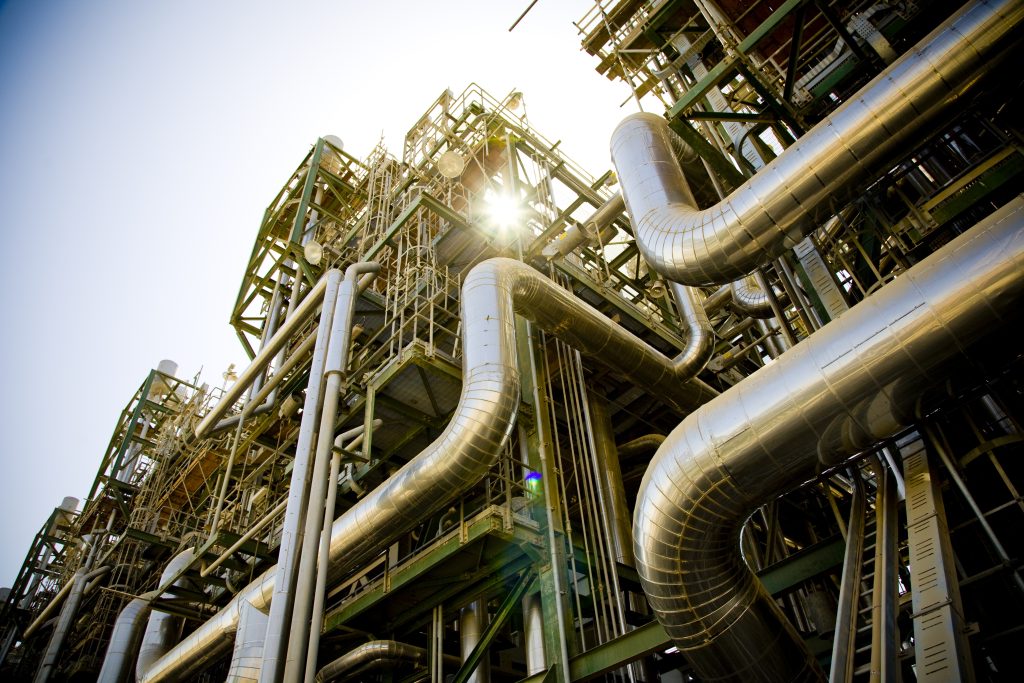It’s been a big week for our team at LanzaTech. On Monday, the U.S. Department of Energy (DOE) announced that LanzaTech and our partner Technip Energies have been selected to receive up to a $200 million award to support our Project SECURE, which will capture CO2 emissions from traditional ethylene crackers and transform them into sustainable ethylene.
This funding will accelerate the expansion of our commercial-scale carbon recycling technology in the U.S. and is a major milestone on our journey to create a circular carbon economy.
Project SECURE, which stands for Sustainable Ethylene from CO2 Utilization with Renewable Energy, is an exciting outcome of our agreement with Technip to commercialize sustainable ethylene, originally announced in July 2023. We have been working with the Technip team since 2020, collaborating on a number of projects through their Hummingbird technology process to produce ethylene, including for the development of the On running shoe, the first-ever shoe made from carbon emissions.
Our project was one of 33 selected by the DOE’s Office of Clean Energy Demonstration’s Industrial Demonstrations Program (IDP) to begin award negotiations, drawing from a pool of $6 billion in incentives as part of the Bipartisan Infrastructure Law and the Inflation Reduction Act.
The IDP is focused on funding projects to demonstrate commercial-scale decarbonization solutions needed to move energy-intensive industries toward net-zero while strengthening local economies, creating, and maintaining high-quality jobs, and slashing harmful emissions that jeopardize public health. This program is admirable not only because it significantly advances the US’s domestic energy transition efforts but also because it prioritizes a just transition for the many.

Making the world’s most important chemical more sustainable
We’ve previously covered the role of ethanol in our global economy, but few people are familiar with ethylene and its importance to the broader supply chain. Ethylene is a building block for thousands of chemicals and materials, including plastics, detergents, and coatings for medical purposes and food packaging. It is often called the “world’s most important chemical” due to its widespread use in critical industries. The ethylene market is expected to be worth $200 billion by 2030, with annual global demand of more than 231 million tons.
However, traditional ethylene production is one of the largest sources of emissions across the chemical industry, generating 553 million tonnes of CO2 emissions per year. Ethylene is typically made in facilities called steam crackers. Ethane, a natural gas found in fossil fuels, is heated to extremely high temperatures until it “cracks” the molecular bonds and produces ethylene.
To address this hard-to-abate but crucial process, we will combine our expertise in capturing and transforming waste carbon into sustainable ethanol with Technip’s Hummingbird technology that converts ethanol to ethylene through dehydration. Our joint project will also incorporate green hydrogen as an energy source, which will make the process even more sustainable. This technology can dramatically reduce the carbon footprint of ethylene production—preventing emissions from entering the atmosphere and helping the industry move away from using virgin fossil fuels as the source.

A well-positioned partner
At LanzaTech, we’re doing all we can to help both industrial carbon generators and downstream carbon users reduce their environmental impact by capturing and recycling waste carbon into sustainable raw materials. But no one company or organization can change our current linear carbon economy alone.
Technip has proven to be a remarkable partner on this journey, and they are well-positioned to help us make an even bigger impact. The company has substantial expertise in the ethylene sector, as over 40% of ethylene steam crackers worldwide use their technology. Their technology is also included in our sister company LanzaJet’s Alcohol-to-Jet process for producing sustainable aviation fuel (SAF). Technip’s extensive knowledge of the industry, technology, and major players will play a key role in bringing our joint solution to commercial-ready scale.
Where we’re headed next
We will now begin award negotiations with the IDP to confirm the final award amount and the timeline. The award will fund the design, engineering, construction, and equipment for a commercial-scale integrated technology unit in the U.S.
Once confirmed, we will work with Technip to finalize the U.S.-based host site for the project, which will be an existing ethylene steam cracker facility. After a site is selected, we will work closely with local community groups, unions and labor groups to hire residents for 200 construction jobs and 40 permanent jobs with benefits and training opportunities.
Globally, there are an estimated 370 ethylene steam crackers, over 40% of which use Technip’s technology, including eight in the U.S. Once completed, our work on Project SECURE has significant potential for replication across ethylene crackers worldwide, representing a massive opportunity to reduce emissions while creating value from waste.
On behalf of the entire LanzaTech team, I’d like to extend our thanks to Technip Energies, U.S. Energy Secretary Jennifer Granholm and the DOE for helping us bring our vision of a circular carbon economy to life.
If you’re interested in learning more about Project SECURE, get in touch here.